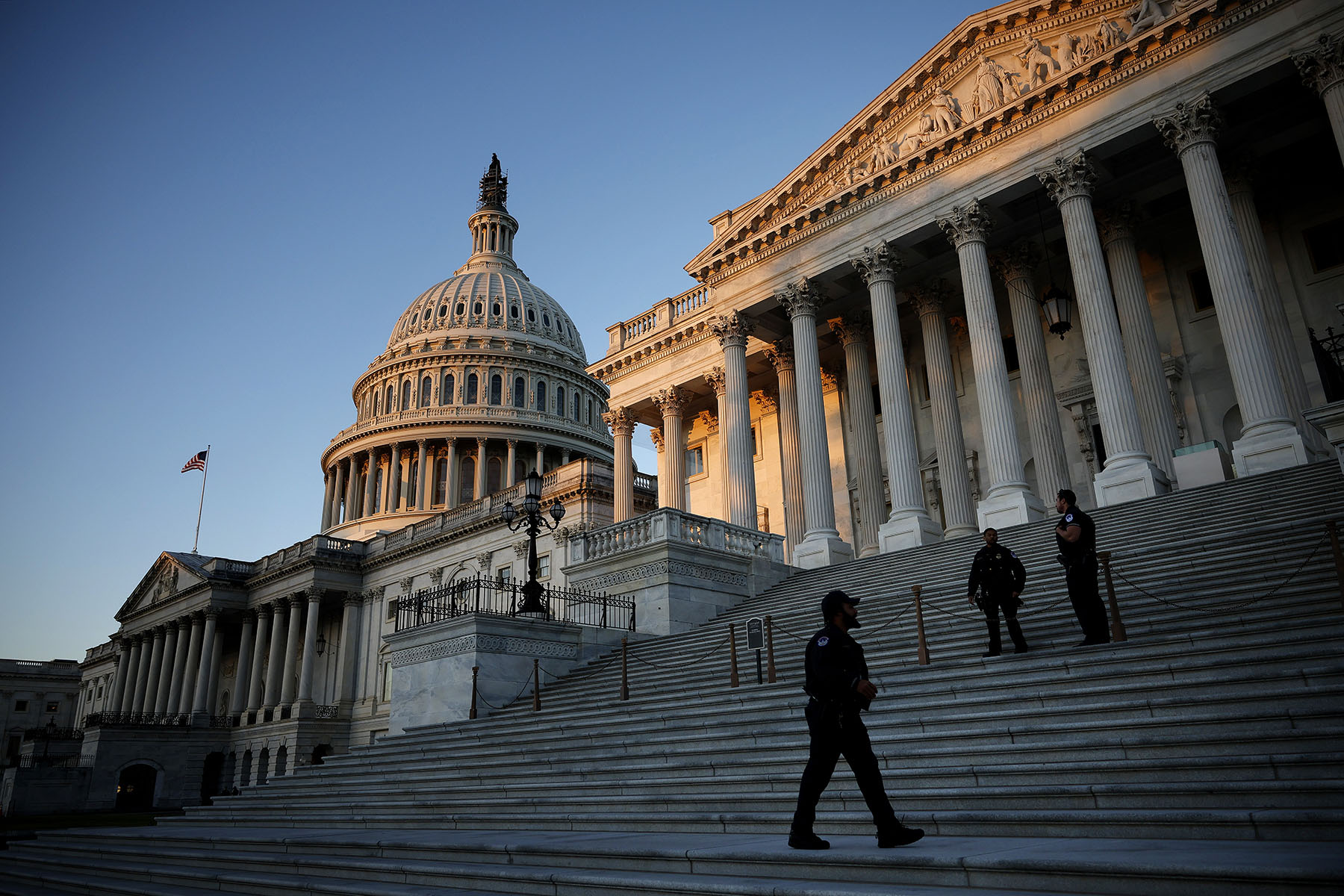Threats targeting members of Congress — especially women of color — have grown over the past few years, and so has some members’ spending on security. This spending, and the rules surrounding it, are in the spotlight in the wake of news that the Justice Department is investigating spending by Rep. Cori Bush, a Missouri Democrat.
Bush said she used campaign funds to pay for security services provided by her husband but that she did so in compliance with regulations and in response to “relentless” threats. She has denied wrongdoing.
The House Committee on Ethics and the Federal Election Commission (FEC) are also reviewing Bush’s campaign spending. The Office of Congressional Ethics also conducted an investigation and found no wrongdoing, according to Bush.
Here’s what we know about Congress, campaigns and security spending.
What rules are there around campaign spending on security?
The FEC prohibits campaign spending on personal use — that is, anything that an officeholder would have even if they weren’t in office. These things include rent or mortgage payments, food, household supplies, clothing and tuition.
Any expense that an officeholder incurs as a result of their position — such as security following excessive threats — does not count as personal use. Candidates can pay family members to work on their campaign if they are providing a service to the campaign — such as security — but their family members are not allowed to work in their congressional offices. Additionally, the cost for the campaign services they provide must be within fair market value.
What security services are provided by Congress?
The Capitol complex, where members work in Washington, D.C., has security staffing. But not all members are guaranteed security when they’re outside of the complex.
Rank-and-file members, or those who do not have leadership positions, such as Bush, don’t get extra security. Only leaders, such as the speaker of the House and the Senate and House majority and minority leaders and whips are eligible for full-time protective services from the U.S. Capitol Police.
How much are Congress members spending for security?
An analysis from CQ Roll Call found that congressional campaign spending on security recently jumped, increasing from $385,000 in the entire 2019-2020 campaign cycle to nearly $3 million in 2021 alone. Bush, along with fellow Squad member New York Rep. Alexandria Ocasio-Cortez, and former Wyoming Republican Rep. Liz Cheney, were the only women among the top 10 security spenders in 2021. Bush, the top spender among women, spent $170,000 that year; Ocasio-Cortez $73,000; and Cheney $59,000.
Once in office, candidates can hire security personnel to accompany them during member-hosted events, events and to be stationed in district offices during business hours, according to the Committee on House Administration.

How often have women in politics experienced threats in recent years?
The Capitol Police said they investigated 8,008 threats last year. They do not provide details about who received the most threats, but other studies show that elected officials who are women or people of color are more likely to face threats and acts of violence than men and White politicians.
In a poll of former Congress members by the University of Massachusetts Amherst last year, women, African-American and Latinx officials were more likely to say they and their families received threats often.
The same trends hold in other offices. A recent report on intimidation of state and local officeholders from the Brennan Center for Justice, a nonpartisan law and policy institute, found that women officials experience gender-targeted abuse three to four times more than their men counterparts, and officials of color were more likely to experience race-based abuse than White officials. Over 40 percent of state legislators faced threats or attacks over the past three years.
The year started with a spate of threats of violence against elected officials, many of them women. A number of those have come in the form of swatting, or when false reports are filed that result in police dispatching to someone’s home, and happened to officials including Republican presidential candidate Nikki Haley; Georgia Republican Rep. Marjorie Taylor Greene; Boston Mayor Michelle Wu; and Judge Tanya Chutkan, the federal judge who is overseeing former President Donald Trump’s election case. In the Brennan Center’s report, more Republican local and state officeholders said they experienced abuse than Democrats.
“The big takeaway is there’s no level of government, and there’s no type of candidate that’s immune from this problem, so really everybody should care about it,” said Gowri Ramachandran, the deputy director of elections and government at the Brennan Center’s Democracy program and author of the report on abuse.
What is the impact of these threats?
Threats discourage people, especially women of color, from pursuing political offices. Forty-four percent of the former Congress members surveyed by the University of Massachusetts Amherst said they are very concerned about election-related violence this year. In the Brennan Center’s report, half of the local officeholders who were women were less likely to run for reelection or a higher office due to abuse.
“It has been very difficult to recruit candidates for this upcoming election cycle. I’ve noticed it more this year than any other year that I’ve been involved in trying to get women and people of color to run for office,” Oklahoma state House Minority Leader Cydni Munson, the first Asian- American woman elected to the Oklahoma legislature, told the Brennan Center.
Beyond even their potential reelection, some expressed hesitancy to speak out on issues such as reproductive rights and gun safety for fear of threats.
“That’s really unfortunate because we need more women in the legislature. We need more mothers in the legislature. Those are real-life stories she could be bringing to the state Capitol,” Munson told the Brennan Center.






